ROMESH THAPPAR V. THE STATE OF MADRAS

1950 AIR 124, 1950 SCR 594 Introduction After independence, this was the first case based on the right to speech and expression of the press under Article 19(1)(a) of the Constitution. Facts Romesh Thapar, a journalist who believed in communist ideology, published and circulated an English weekly journal named Cross Roads within the state of […]
IN RE: THE BERUBARI CASE: 14 MARCH, 1960
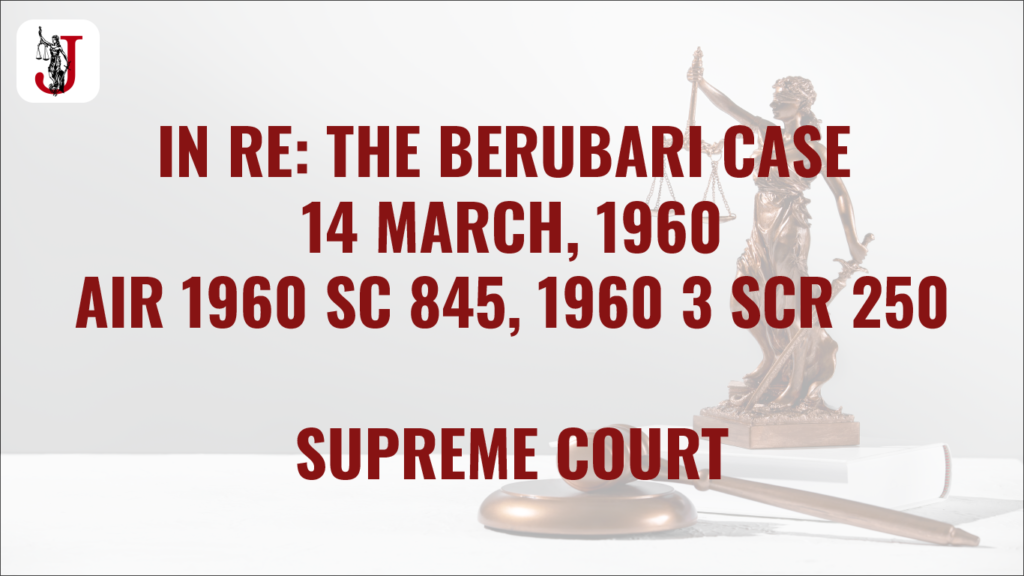
EQUIVALENT CITATIONS: AIR 1960 SC 845, 1960 3 SCR 250 History/ Facts Legal Issues 1. Is it necessary to take any legislative action to carry out an agreement relating to the Berubari union? 2. Is Article 3 of the Constitution of India, 1950, sufficient for such an agreement? 3. Is there a need for amendment […]
MINERVA MILLS LTD. & ORS VS UNION OF INDIA
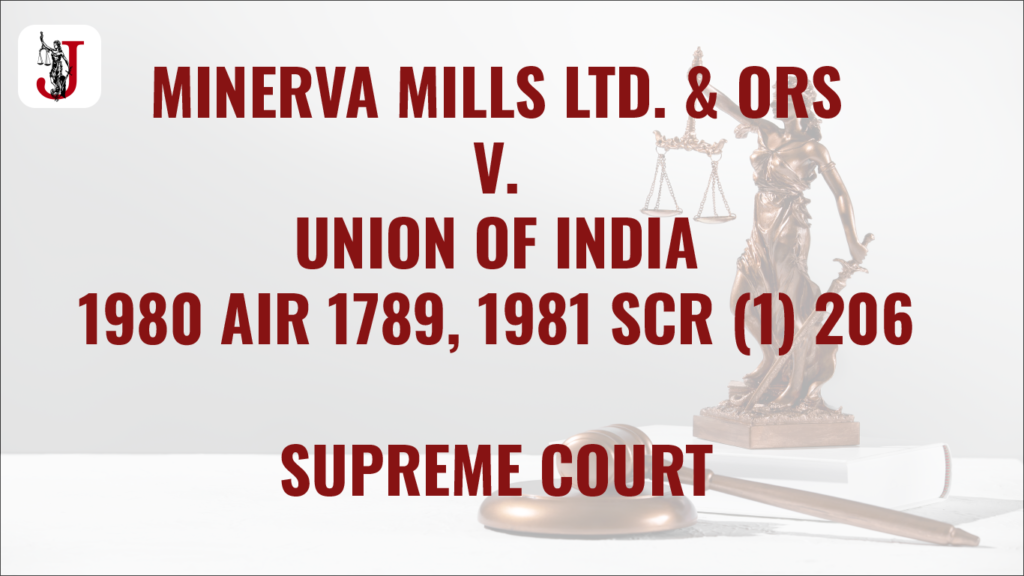
1980 AIR 1789, 1981 SCR (1) 206 Introduction There is a conflict that arose in this case between fundamental rights and the directive principles of state policy. Fact Legal Issues 1. Whether insertions made under Article 31C and Article 368 through Sections 4 of the Constitution (42nd Amendment) Act, 1976, are constitutionally valid? 2. Whether […]
L. CHANDRA KUMAR VS UNION OF INDIA

A.I.R 1997 SC 1125 Introduction In 1958, the Law Commission submitted a report recommending setting up a tribunal consisting of administrative and judicial members to decide service matters on its own, as the judicial system of that era felt it was a burden to solve each and every case of all the matters. In 1969, […]
KESHVANANDA BHARTI VS STATE OF KERALA: 24 APRIL, 1973
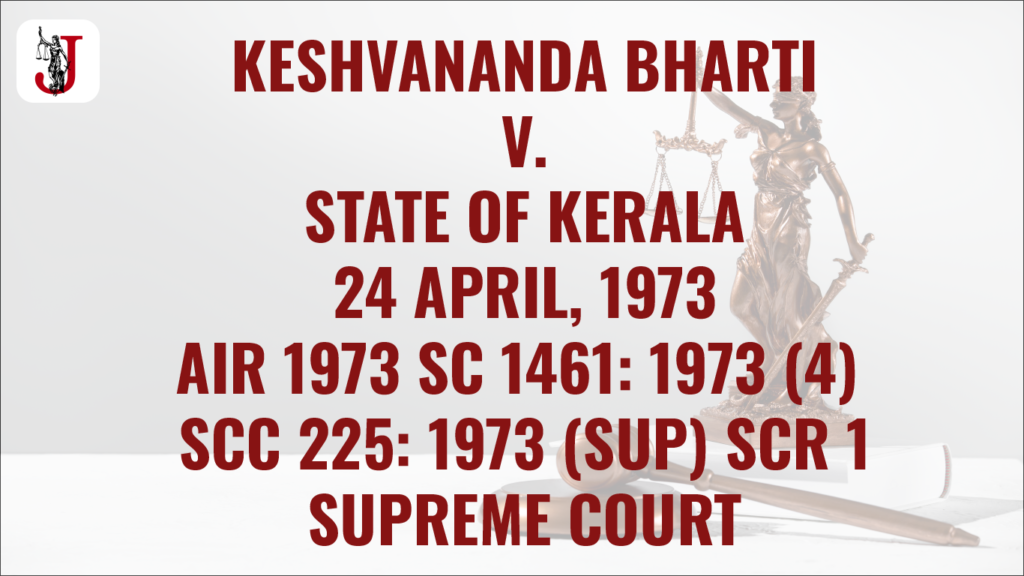
AIR 1973 SC 1461: 1973 (4) SCC 225: 1973 (SUP) SCR 1. History/Facts Background 1. Gives the Parliament the power to amend any part of the Constitution, including fundamental rights. 2. Make it compulsory for the President to give his assent to any Constitutional Amendment Bill. 1. Curtailed the Fundamental Right to Property under Article […]
INDIRA NEHRU GANDHI VS SHRI RAJ NARAIN: 7 NOVEMBER, 1975
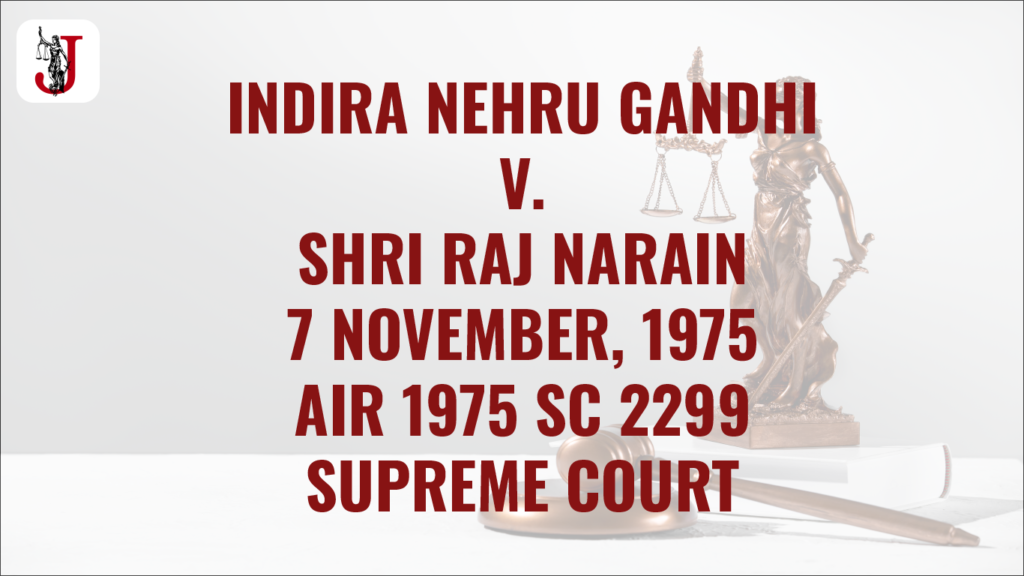
AIR 1975 SC 2299 Introduction After the Keshvanand Bharti case, this case had a great impact on Indian politics. It was the first time in Independent India’s history that a prime minister’s election was set aside, which created a huge effect on the judicial system of our country. It was then that the doctrine of […]
I. C. GOLAKNATH & ORS VS STATE OF PUNJAB: 27 FEBRUARY, 1967
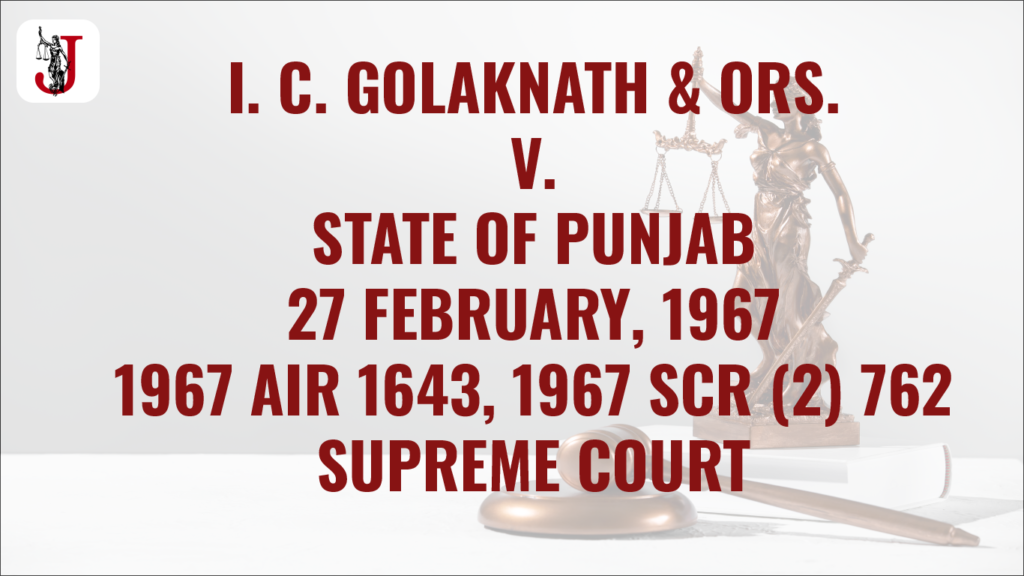
1967 AIR 1643, 1967 SCR (2) 762 Introduction The Zamindari system was a major social issue after independence. The government failed to eliminate it due to Article 19(1)(f) of the Constitution, which provides property rights as fundamental rights. The 1st Amendment Act was passed by the parliament, which limited the Right to Property under Article […]
BASHESHAR NATH V. THE INCOME TAX COMMISSIONER
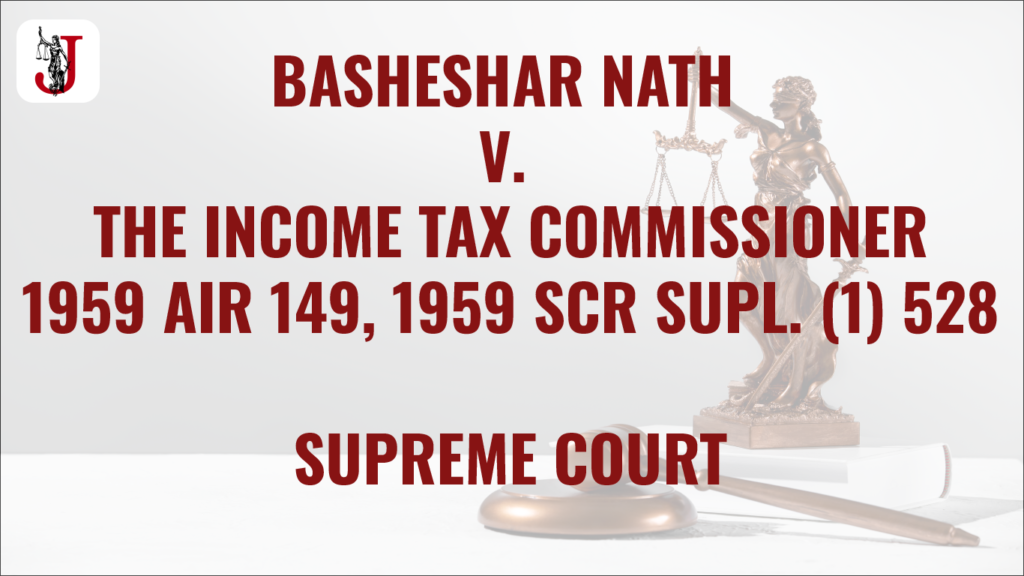
1959 AIR 149, 1959 SCR SUPL. (1) 528 Introduction At first, we have to know about waiving a right, which means a person can no longer use his right and is excluded from challenging the constitutionality of that law. The doctrine of waiver, as defined by Black’s Law Dictionary, is the intentional or voluntary relinquishment […]
A.K. GOPALAN V. THE STATE OF MADRAS

1950 AIR 27, 1950 SCR 88 Introduction This case is also known as the Preventive Detention Case, interpreted by the judiciary in connection with Article 21 of the Constitution. Facts Sri A. K. Gopalan, the then communist leader, was detained under Section 3(1) of the Preventive Detention Act, 1950. This provision enabled the Central or […]
M. Siddiq (D) Thr. Lrs. v. Mahant Suresh Das & Ors. (Ayodhya Temple- Babri Masjid land dispute case)
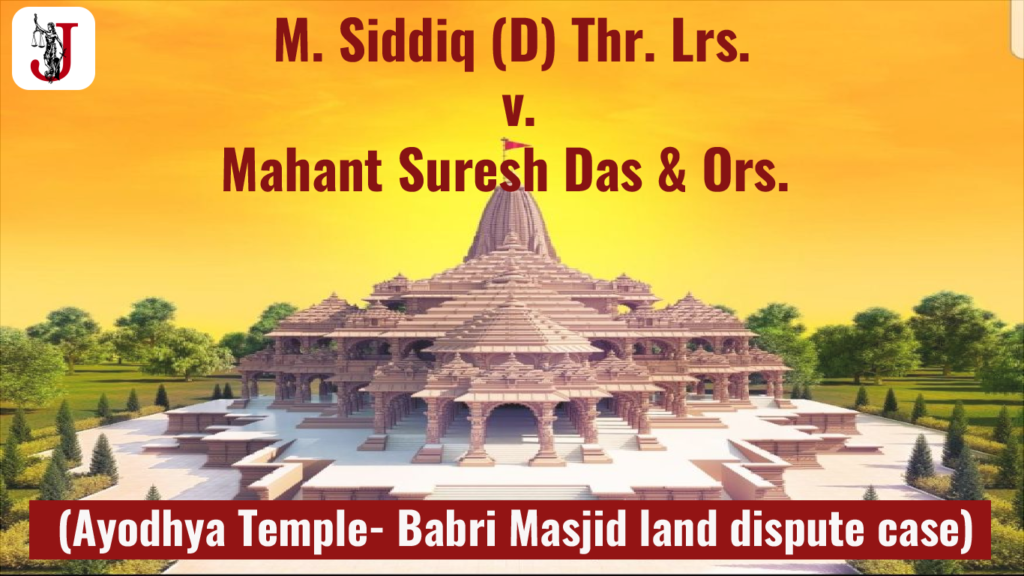
Case Analysis: Babri Masjid-Ayodhya Land Dispute Case This dispute was started over a long period of time between the two religious communities. There were three important years: 1528: Babri Masjid was constructed 1949: Sri Ram’s idol was placed 1992: Demolition of Babri Masjid Before independence, Babri Masjid was built in 1528 by Mir Baqi, commander […]